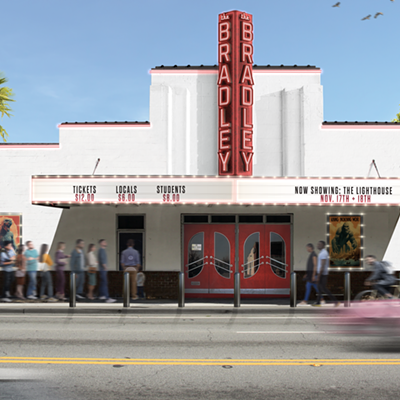AMERICANS DON'T TRUST CRITICS. Most people just want to go to their screenings of Saw IV or Epic Movie guilt free without some egghead tastemaker telling them that they should be seeing Abbas Kiarostami’s latest meditation on mortality instead.
Critics are being jettisoned from local and national papers at an alarming rate, and many who remain now add a spoonful of sugar to their reviews in fear that Joe Six Pack may write an angry letter to the editor because he wholeheartedly disagreed with the critic’s assessment of that scene in Transformers where the robot peed on John Turturro.
But critics serve an important purpose in persuading their audience to pick up a book or CD that they wouldn’t have known about otherwise, or to look at a film in a way they hadn’t considered. Many downplay critics’ significance by pointing to the massive box office returns of poorly reviewed blockbusters, but a positive review of an obscure movie or band can make all the difference in the world. And critics usually get it right, at least when they come to a consensus.
Look at No Country For Old Men. Roger Ebert called it “a perfect movie.” Glenn Kenney of Premiere called it “as stomach-churning a suspense exercise as the cinema has seen since the salad days of Hitchcock.” A.O. Scott called it “pure heaven.” Even the handful of negative reviews bend over backwards pointing out its many achievements before sheepishly confessing that it just didn’t work for them.
The reason for this is simple: No Country For Old Men is awesome. It’s a masterpiece, perhaps the masterpiece of the Coen Brothers’ career, and we’re talking about the guys who made Fargo, The Big Lebowski and Miller’s Crossing.
In this age of miniscule attention spans and disposable entertainment, it feels strange to see a film where airtight scene follows airtight scene, adding up to a classic that works both as a genre exercise and as a powerful allegory.
The performances are gripping from the top (Tommy Lee Jones and Josh Brolin get parts worth their salt for the first time in ages) on down (Kelly Macdonald and Garret Dillahunt make considerable impressions in smaller roles) but we get exceptionally mesmerizing work from Javier Bardem, who is given the difficult task of being an antagonist for both the hero and human civilization as a whole. In a world where everyone gets along pretty well, Bardem’s immortal villain Anton Chigurh is the eternal wrench in the works.
Other recommendations aren’t nearly as sound. I drove two and a half hours to see Todd Haynes’ wildly acclaimed freeform Bob Dylan biopic I’m Not There. I love Bob Dylan, I love Todd Haynes and every critic I respect loved the film (those three guys I listed above rated it only slightly below No Country For Old Men). Imagine my surprise when I walked out absolutely hating it.
I’m Not There operates entirely on miscalculations. While every biopic suffers from the simple fact that an incredibly charismatic and fascinating individual is being played by someone who isn’t nearly as charismatic or fascinating, Bob Dylan cannot be portrayed accurately by anyone. His voice, attitude and words can only come from him, and anyone else who attempts it looks totally ridiculous.
The actors who try to emulate him most closely here are Christian Bale and Cate Blanchett. Both are among the best actors alive, and both fail miserably. Bale in particular is laughably terrible to the point that I thought his segments were intended as a parody of Dylan’s earnestness in the early 60’s and late 70’s.
The film takes its bizarre structure partly as a response to Martin Scorsese’s masterful No Direction Home, which Haynes felt was too straightforward and melodramatic. Haynes wanted his film to feel more like the frantic, drug-addled 1966 documentary Eat The Document, adding kinetic energy to one of pop culture’s most dynamic figures. It’s an interesting idea, but one that’s impossible to sustain for the massive 135-minute running time.
And while Haynes edits with a nontraditional narrative in mind, the actual scenes he’s putting together are imbued with a mind-numbing literalism that goes as far as visually staging “Ballad of a Thin Man” word-for-word; seriously, Mr. Jones walks into the room with a pencil in his hand, then sees somebody naked and says, “Who is that man?”
It doesn’t end there. Haynes nods to Dylan’s 1971 novel Tarantula by showing a tarantula. He acknowledges Arthur Rimbaud as a major Dylan influence by naming a character “Arthur Rimbaud.”
But even with all this, the biggest problem is that there’s simply no reason for this movie to exist. It consists almost entirely of actors playing out moments from Dylan’s life that we’ve seen a thousand times in various documentaries. Why do we need to see it re-staged with an actor doing an awful impersonation of him? 

























